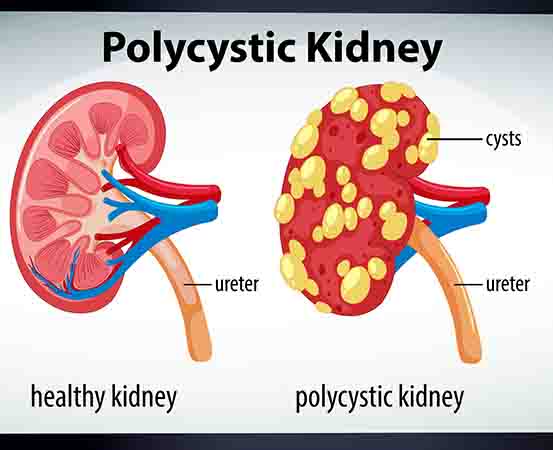
Celeste Reilly, a 30-year-old childhood educator from Brisbane, was just 25 weeks old when she was diagnosed with a rare form of polycystic kidney disease (PKD) (as she carried a family history of the disease). “I have always taken prescribed medications to maintain my high blood pressure; but in 2015, I had to undergo dialysis for two years until my kidney transplant,” Celeste told Happiest Health. She is one among the many suffering from PKD, a genetic condition that leads to renal failure over time.
There are two types of PKD:
- Autosomal recessive polycystic kidney disease (ARPKD), which is a rare form diagnosed in newborns.
- Autosomal dominant polycystic kidney disease (ADPKD), which is commonly seen and is usually diagnosed in adulthood.
Celeste, who is dealing with ARPKD, finds life bearable after her renal transplant.
READ MORE :
Eight signs of kidney disease on your skin
How much water is right for the kidney?
The link between anemia and chronic kidney disease
Maintaining kidney health in women
Link between PKD and hypertension
In case of PKD, numerous cysts (fluid filled sacs) are formed in both kidneys. Dr Tanuj Paul Bhatia, a urologist in Sarvodaya Hospitals, Delhi, says that the cysts grow to become painful and might cause bleeding upon infection.
PKD is a form of chronic kidney disease. “As the cysts increase in size, healthy parenchyma tissue (urine-secreting tissue that maintains functionality of kidneys) decreases and causes hypertension. This results in the enlargement of kidneys and leads to kidney failure over time,” Dr Bhatia explains.
Dr Vilas P Sable, urologist at Dr D Y Patil Medical College, Hospital & Research Centre, Pune, tells Happiest Health that an autosomal gene mutation causes PKD.
According to National health Services, UK, ARPKD is caused by a DNA mutation (abnormality) in a gene called PKHD1, which produces a protein called fibrocystin that gives the kidney its structure.
“Presence of that abnormal gene in both the parents causes ARPKD. If one of the parents carry that gene, then at least fifty percent of the next generation will inherit ADPKD,” says Dr Sable
Early screening for PKD
Dr Sable shares that many people go on with their lives without knowing that these cysts exist and only consult doctors when the disease progresses to a certain stage. “Most people discover that they have cysts due to an accidental ultrasound mostly in their 40s, when it should actually be discovered when they are in their 20s,” he says. Young adults who have high blood pressure should stay connected with a nephrologist/urologist as a precautionary measure for PKD.
Treatment for PKD
Dr Sable says that the treatment for PKD is limited and directed towards complications. When the cysts increase rapidly in number and size, the kidneys become enlarged. “De-roofing of cysts is done in such cases to reduce kidney size which causes pain and discomfort. Dialysis or kidney transplant from appropriate donors (who don’t carry the mutation that causes PKD) is key to fighting this disease,” he explains.
“Formation of kidney stones will accelerate the process of kidney failure, which is why they should be removed immediately,” says Dr Sable. He further adds that prompt treatment is required in case of hematuria (which is blood in the urine) as it might lead to significant blood loss.
Takeaways
How to maintain kidney health when you have PKD
- An ultrasound screening of the kidneys should be done if one has a family history of PKD or high blood pressure as a young adult.
- Once diagnosed, monitoring blood pressure, taking renal function tests and reporting them to a urologist/nephrologist are necessary.
- Buying over-the-counter medicines like non-steroidal anti-inflammatory drugs (NSAIDs) and antacids should be avoided. Taking these drugs on a regular basis facilitates kidney failure.
- Being frequently dehydrated due to nausea, vomiting, loose motions or inadequate water intake should be avoided as it can precipitate early kidney failure.
- Restricting salt intake, following a healthy lifestyle and maintaining physical activity can keep blood pressure in check, thereby delaying PKD.
















